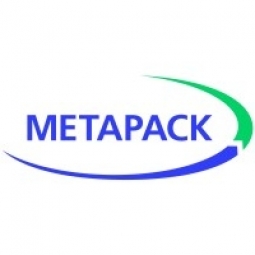Customer Company Size
Mid-size Company
Region
- Europe
Country
- United Kingdom
Product
- MetaPack Manager
Tech Stack
- Enterprise Resource Planning (ERP) system
Implementation Scale
- Enterprise-wide Deployment
Impact Metrics
- Cost Savings
- Productivity Improvements
Technology Category
- Functional Applications - Enterprise Resource Planning Systems (ERP)
Applicable Functions
- Logistics & Transportation
Use Cases
- Supply Chain Visibility
Services
- System Integration
About The Customer
Polybags Ltd is a company that specializes in polythene and polypropylene products. Established in 1961, the company has been trading online since 1999 and has become the leading UK site for sourcing polythene bags and film. As a holder of a Royal Warrant, Polybags places a significant emphasis on quality and fast, friendly service. The company dispatches over 80 tonnes of product per week, averaging 500 parcels a day and serving over 20,000 customers annually. Polybags' enterprise resource planning (ERP) system is provided by Kerridge Commercial Systems (KCS), a leading supplier of ERP solutions to distribution businesses.
The Challenge
Polybags Ltd, a leading UK site for sourcing polythene bags and film, was using an enterprise resource planning (ERP) system provided by Kerridge Commercial Systems (KCS). The ERP system was directly integrated through a bespoke piece of software with a single carrier. However, when that carrier ceased to exist, Polybags faced a serious dilemma. The company needed a solution that would protect against overreliance on a single carrier and provide options to easily bring on more carriers without having to develop their own bespoke link.
The Solution
Polybags turned to MetaPack Manager as a solution to their problem. Kerridge developed a module for Polybags’ ERP system that provides a single integration into the MetaPack Manager platform, opening up MetaPack’s global carrier library of over 300 carriers across 3,500 different services. This new approach not only protected Polybags from overreliance on a single carrier but also yielded significant cost savings. The switch to MetaPack removed the cost of integrating directly to a new carrier partner, which would typically have cost Polybags thousands of pounds. Polybags has been able to streamline the process by generating labels directly from the company’s OneOffice ERP software, which is seamlessly integrated with MetaPack Manager.
Operational Impact
Quantitative Benefit

Case Study missing?
Start adding your own!
Register with your work email and create a new case study profile for your business.
Related Case Studies.

Case Study
Remote Temperature Monitoring of Perishable Goods Saves Money
RMONI was facing temperature monitoring challenges in a cold chain business. A cold chain must be established and maintained to ensure goods have been properly refrigerated during every step of the process, making temperature monitoring a critical business function. Manual registration practice can be very costly, labor intensive and prone to mistakes.

Case Study
Retail Uses RFID to Enable Cold Chain Monitoring
Like most grocery retailers, Hy-Vee is faced with the challenge of providing the highest quality products to its shoppers. Shoppers want the longest possible shelf life from perishable products and expect a consistent product experience each time they shop. Controlling the quality of products sold leads to shopper loyalty, which is of paramount importance to the success of Hy-Vee. Before products arrive in stores, Hy-Vee's distribution centers (DCs) handle items including dairy products, fresh meats, seafood, deli items, produce and frozen goods, all of which have different temperature needs and sensitivities. During transit from suppliers to DCs, Hy-Vee has limited visibility and temperature management abilities due to large amount of supplier managed transportation. For instance, during a week-long transit, a supplier's carrier equipment may malfunction, causing an item to thaw and then refreeze once repairs are made. Hy-Vee sought help from TempTRIP, an RFID solution provider that focuses on shipping, storage, receiving, and temperature control. TempTRIP's EPC RFID tags use Impinj chips to monitor and report temperature readings throughout the shipping and receiving process. The tags can also be re-configured and re-used, a unique feature within the current market of temperature monitoring devices.

Case Study
Covisint Improves Mitsubishi's Collaboration With Its Supply Chain
Mitsubishi sought to improve supplier relationships on a global basis and to offer an easy-to-use solution to interact with them. In August 2004, Mitsubishi selected Covisint’s platform to help improve sharing of information and collaborative business processes with its global suppliers. Covisint enabled Mitsubishi to provide its suppliers with immediate access to information and applications to obtain more collaborative working relationships










